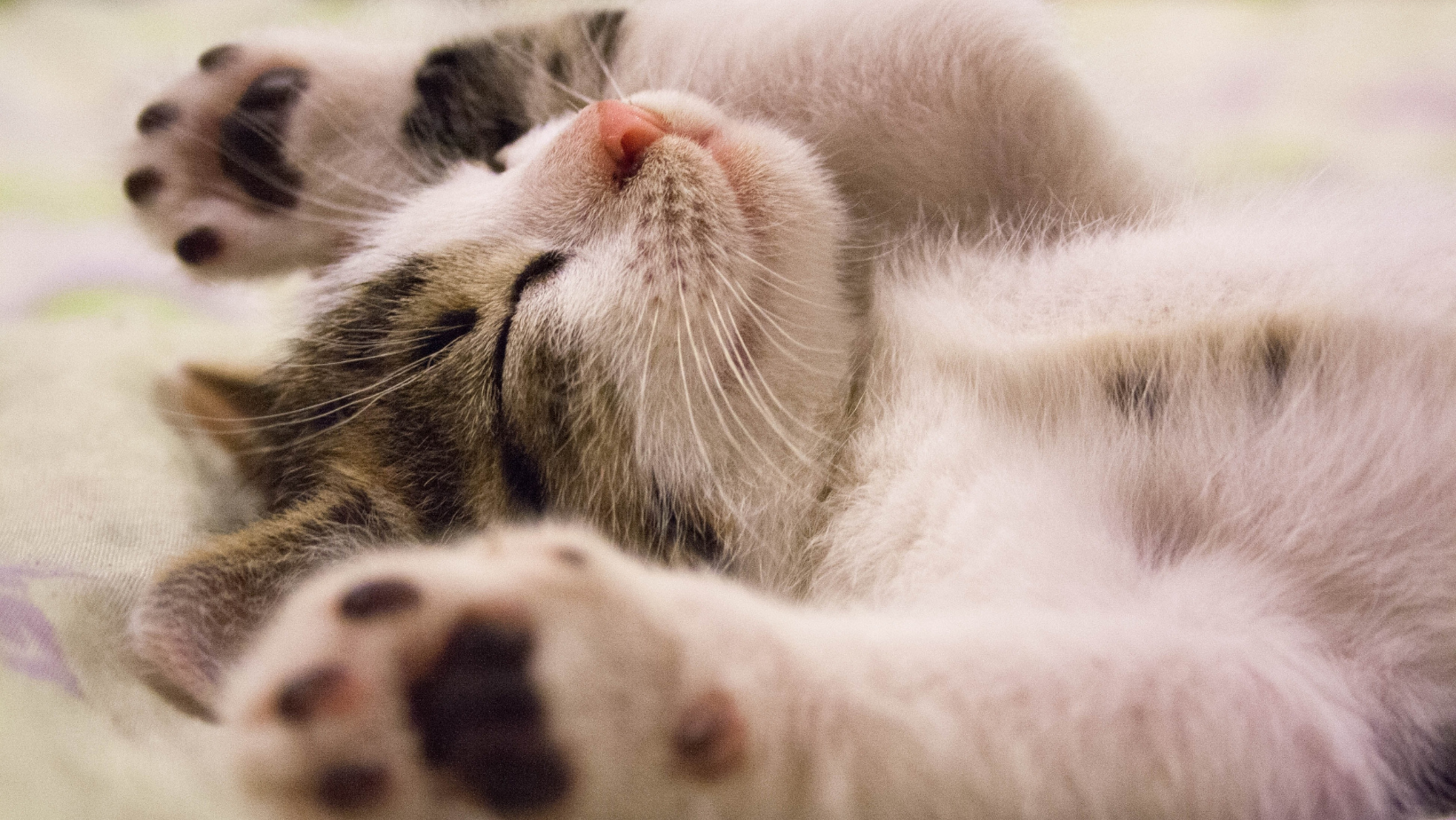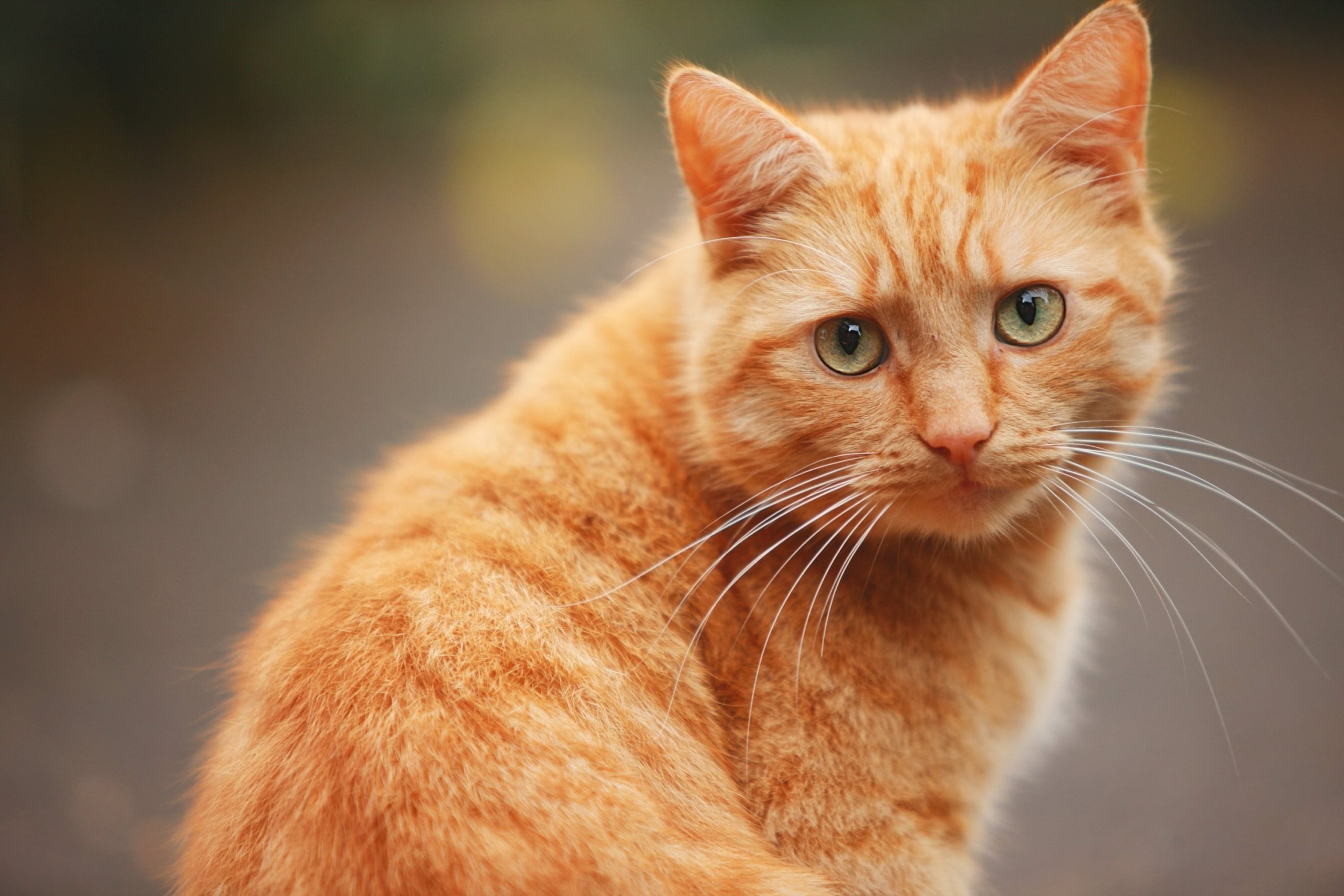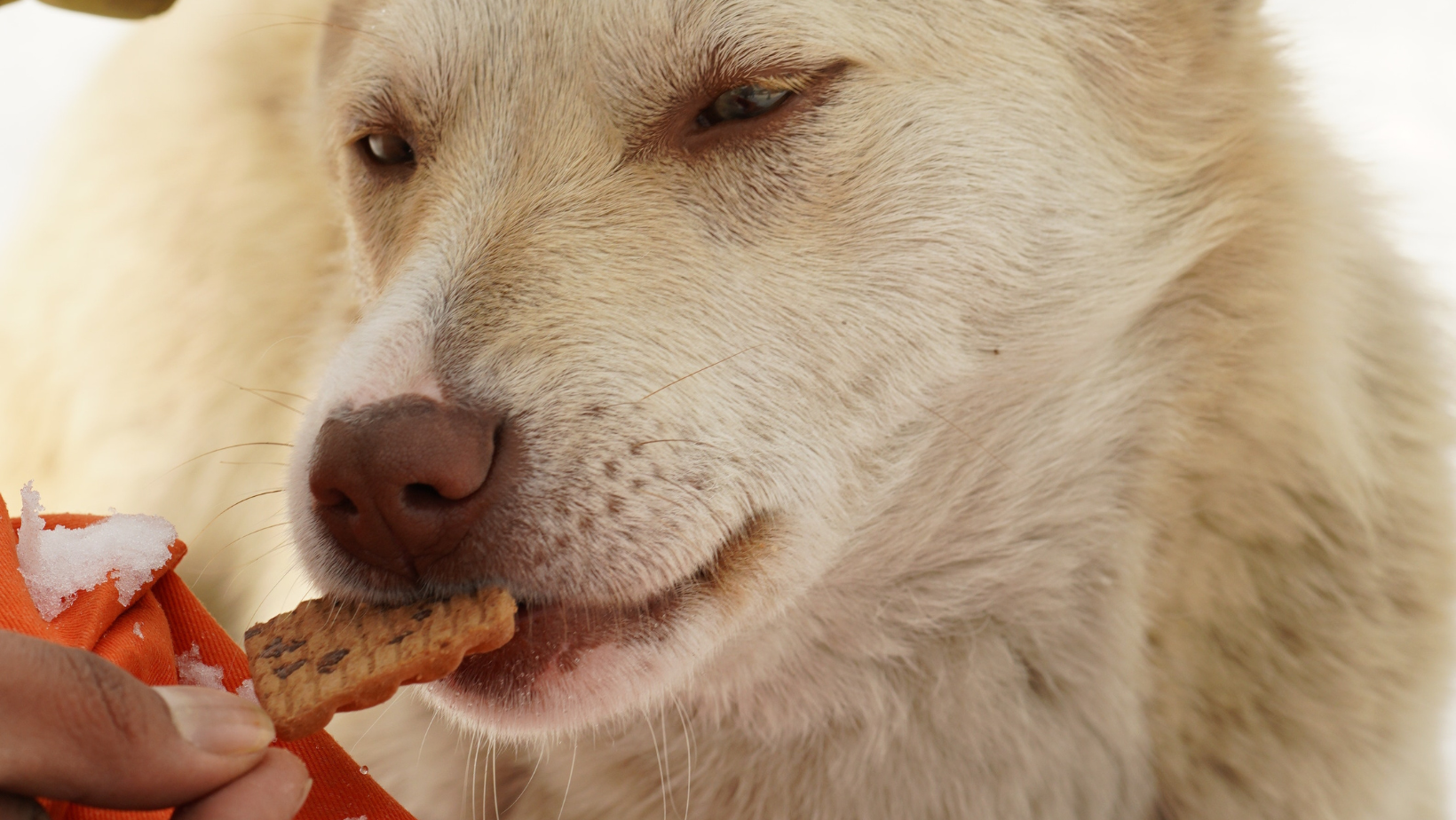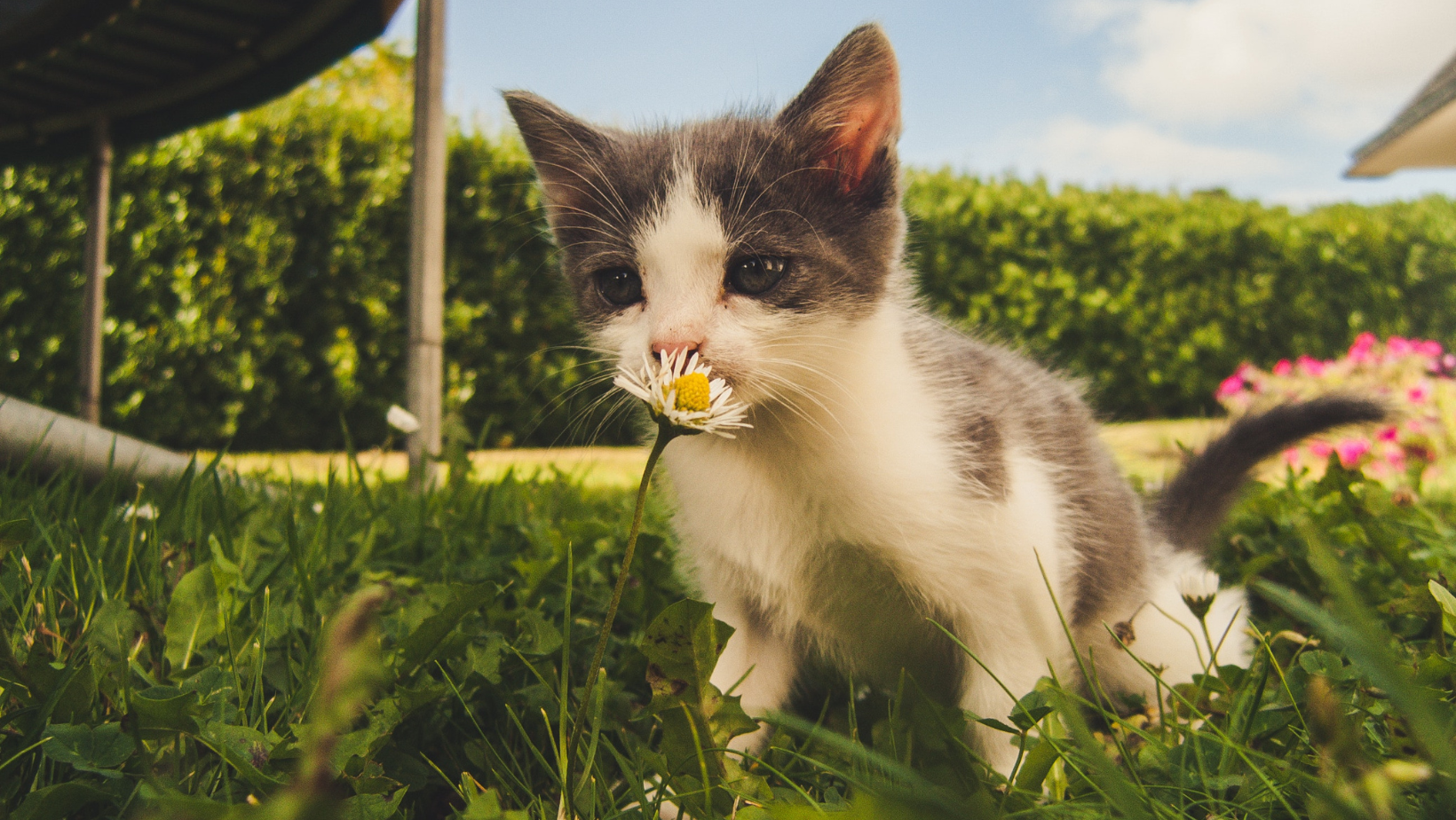9 Ways to Help Your Constipated Cat

Topic :
- Symptoms
- Causes
- Vet Treatment
- 9 Ways to Help Your Constipated Cat
Cats often have constipation. Typically, it’s moderate, and you may heal your cat by using straightforward home remedies.
However, constipation in cats can occasionally be a sign of more serious medical problems, and it can also get quite bad and unpleasant. How then can you tell whether there is a major issue that requires veterinary care?
Symptoms of Constipation in Cats
Stools that are hard to pass or are infrequent are signs of constipation. Generally speaking, cats urinate every 24 to 36 hours. Your cat can be constipated if she’s having trouble pooping and is doing it less regularly.
While there is some typical variance, you should call your vet if it has been more than 48 to 72 hours since the last bowel movement.
Constipation in cats is mostly characterised by:
- Hard, dry stools (inside or outside the litter box)
The excrement should be well-formed and a deep brown hue in most cases. Litter will adhere to a healthy stoma because it is sufficiently wet. Constipated cats may pass very dry, solid faeces. Because it can be uncomfortable for cats to try to pass stools, they may leave the litter box before they’re completed, so you could find these faeces elsewhere.
- Crying, struggling, or avoiding the litter box entirely
Other indications of discomfort include vocalising, straining, or repeatedly entering and exiting the litter box before using it. While trying, your cat might not be able to defecate at all. You should consult a veterinarian if you notice any of these indicators since pain in the litter box may also be a sign of significant urinary tract problems.
You could also notice symptoms of the underlying reason since constipation is truly only a symptom of other problems. These may consist of:
- Nausea
- A diminished appetite
- Vomiting
- Greater or lesser hydration
- More urination
- Loss of weight
- Muscle wasting
- Having trouble getting up
- Stiffly walking
- Hiding
Causes of Cat Constipation
Constipation can arise from anything that makes a cat dehydrated. Some problems are minor and may be handled at home with dietary and lifestyle changes, while others can be quite serious.
If the intestines aren’t functioning regularly and keeping the faeces soft and moist, constipation may result. Underlying conditions including stress and anxiety, inflammatory bowel disease, allergies, neurological difficulties, and even some types of cancer can contribute to this.
Kidney illness, diabetes, and hyperthyroidism are a few chronic conditions that can make cats constipated. Your cat may have discomfort when urinating and constipation if one or more of its anal sacs has ruptured or become impacted. Dehydration and constipation are other risk factors for cats on dry food diets.
Constipation can happen in cats that retain their stools for longer than usual because the intestines reabsorb too much water when the faeces remains in them for too long. Obesity, stress, anxiety, arthritic or anal gland discomfort, a blockage, or even some types of cancer are causes of this.
Vet Treatment for Constipation in Cats
While constipation is normal in cats, it may also be a sign of serious illness, so you should talk to your vet about it.
To lessen the danger of long-term harm from colon distension, constipation must be addressed as soon as feasible. In order to effectively treat a condition, the underlying problem must be found and treated (if at all feasible), the impacted faeces must be removed, and recurrences must be avoided.
Your veterinarian may administer fluids and/or an enema to your cat to relieve constipation right away. It is not recommended to administer an enema to a cat at home because it is a veterinary procedure. Some enemas intended for humans can be extremely hazardous to cats.
Additionally, veterinarians might suggest over-the-counter remedies or prescription medicines to assist you treat the constipation symptoms in your cat.
Instead of only attempting to treat the symptoms, your veterinarian may assist uncover the underlying problem that is causing the constipation.
Some cats that experience chronic constipation or obstipation may have a megacolon, an enlarged intestine brought on by a problem with the colon’s muscular power. The damaged portion of the large intestine may be removed in cats with persistent constipation or megacolon who have not responded to medicinal therapy.
Tips and Home Remedies for Constipation in Cats
Here are 9 ways to help your constipated cat:
Increase Water Consumption
Drinking more water and maintaining hydration helps avoid constipation since dehydration is a factor in constipation. The greatest strategy to enhance a cat’s water intake and keep them hydrated is to serve them wet food because cats don’t do well with standing water. As a result, they drink a lot more water and are far less likely to become constipated.
Adding extra water bowls throughout your house, using pet water fountains, letting a faucet drip, and flavouring the water with items cats like, such clam juice, tuna juice, or beef broth, can all help your cat drink more water. Always keep a source of plain water available if you flavour your cat’s drink in case they don’t enjoy the flavour.
Try a New Diet
Inflammation of the intestines and constipation can result from food allergies in cats. Changes in the protein source in your cat’s diet, such as chicken, lamb, etc., can lessen inflammation and promote regular bowel function, which relieves constipation.
There are also specialised hypoallergenic diets and limited ingredient diets available for cats who may be sensitive to a variety of items. However, it does take a diet modification roughly 8 to 12 weeks to take effect, thus this is part of long-term treatment.
Follow the suggested transition period and combine the new and old foods as directed on the cat food container.
Help Your Cat Maintain a Healthy Weight
Intestinal inflammation brought on by obesity slows down digestion in the intestines. Constipation results from the stool’s excessive water absorption. In extreme situations, there is so much abdominal fat that it actually prevents faeces from moving. Your veterinarian can work with you to develop a nutrition plan and can assist you in determining whether your cat needs to reduce weight.
Increase Exercise and Enrichment
Constipation may be treated and prevented with the use of exercise, which helps to encourage proper bowel movement. Cat toys, cat trees, window perches, and more playtime with you may all help your cat become more active. Additionally, exercise will aid with enrichment, anxiety reduction, and weight loss for your cat.
Minimize Stress and Anxiety
When their habits are disturbed, cats may quickly feel anxious. There may be a more obvious reason, such as getting a new pet or relocating, or there may be a less obvious reason, such as a schedule shift, nearby construction noise, or a new dog barking in the neighbourhood.
A cat will occasionally just need some time to get used to changes. But you may use soothing pheromones like Feliway, vitamins like Zylkene and Solliquin, herbs, and/or pharmaceuticals to assist lessen tension and anxiety.
Add More Litter Boxes
Cats may be very picky when it comes to their litter boxes. They might not use a litter box as frequently if they dislike its location or even the kind of box or litter, which can cause constipation. There should be at least one litter box on each floor of your home and at least one more litter boxes than there are cats. To determine which boxes and litter your cat prefers, you might need to experiment.
Try Fiber or Probiotics
The “good bacteria” known as probiotics aid in maintaining gut health. Constipation is avoided by having healthy intestines that keep faeces soft and move them along smoothly.
The healthy bacteria are fed by fibre, which also supports regular intestinal movement. Additionally, it can aid in maintaining more water in the intestines, which treats and prevents constipation.
There are several sorts of fibre, therefore each cat will respond differently to them. Psyllium husks (Metamucil) and wheat bran are two typical sources.
High-fiber diets do not usually relieve constipation, though, since “the gastrointestinal system of cats is a bit different from that of people.” In fact, a diet lacking in fibre might sometimes be more effective. “A lot of it hinges on what the problem’s root cause is. Constipation typically has an underlying reason, so it’s crucial to realise this and take your cat to the doctor to find out what it could be.
Monitor Your Cat for Constipation
At first, check on your cat’s frequency of defecation and stool consistency at least twice per week; after that, check in weekly or biweekly.
If you detect unusually dry, hard faeces or if your cat appears to be straining when urinating, call your veterinarian. Keep an eye out for any further indications of constipation, and get in touch with your vet right away if you experience diarrhoea since it can quickly result in dehydration.





